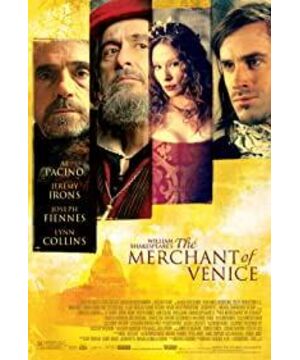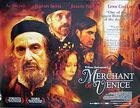Sherlock
He is the representative of usurer capital, a miserable miser. But Sherlock, who loves money like his life, is uncharacteristically at the beginning of this scene. He doesn't want to repay several times more than the loan, but a piece of useless human flesh. It can be seen that he is narrow-minded and revengeful, and he will go crazy when he gets the chance. To take revenge on those who are unfavorable to him, he must put his opponent to death, which shows his ruthlessness. Sherlock sneered at other people's abuse, and his calm and confident attitude came alive. After losing the lawsuit, he wanted to triple the repayment, his greedy nature was restored, and the miser's true nature was exposed. He's an absolute demon. At the same time, he was also a bullied Jew in Christian society. Sherlock's revenge on Antonio had legitimate and complex motives. For Sherlock, people despised his greed, hated his cruelty, and somewhat sympathized with the racial oppression and humiliation he suffered. In the eyes of many people, Sherlock is a sophisticated, insatiable, insatiable, vampire image, and a miser who "let an unreliable servant guard the door, and I feel a little worried", Sherlock can't say it's not a tragedy in this comedy Character, the servant ran away from hunger and ran away to the person he hated, while the daughter eloped with her lover with her own property, and finally even lost part of her remaining property. soldiers". He is also a person with a strong sense of revenge. In order to avenge Antonio's revenge, he can let him get into the trap step by step without charging interest, in order to get a piece of his meat, but what if he gets the meat? He said, "It's fine for fishing." In fact, Antonio is also a stumbling block in his financial path. For his own financial path, he must get rid of this stumbling block.
Although Shakespeare satirized the Jewish businessman Sherlock, he also showed the discrimination and exclusion of the Jews by the European government at the time. In the 16th century, even in Venice, the most powerful and free city in Europe, the intolerance of Jews was an unalterable fact at the time. Forced by law to live in ancient walled factories or slums, the gates are locked after sunset and are guarded by Christians. Any Jew who leaves the ghetto during the day wears a red hat that identifies them as a "Jew". Jews were forbidden to own property, so they could only lend at usury, lending money out for interest, which was also against Christian law. For the Merchant of Venice they turned a blind eye, but for the zealots of the Jewish hatred religion it was a different story. They would beat, abuse and even deprive Jews of their right to live.
And this kind of injustice is the main reason for Sherlock's perverted personality. Therefore, Sherlock is a sad character. He is not hateful. What is hateful is the society at that time. It was precisely because of the sad society at that time that a tragic Sherlock was created.
Portia
This is the image of the humanist that the author extols. She is the orphaned daughter of a wealthy aristocrat. She is an erudite, attentive and cultivated woman of the new age. She speaks elegantly, is witty and brave, and adapts to changes. In order to help her husband's friend, she disguises herself as a man. Knowledge, not only maintains the dignity of the law, enforces the law like a mountain, but also kills the wicked, which is very pleasing. It can be said that Portia is a female image in the new era, a person who advocates justice, is lively, cheerful, generous, humorous and full of wisdom, and acts decisively. When she faced the aggressive Sherlock, she was calm and let the opponent fall into her own trap step by step. In the eyes of many people, it was a strange case that could not be solved, but this young girl was solved quickly, and the dawn of the era of female awakening was shining on her.
Antonio
He is a businessman of the emerging bourgeoisie, and the author glorifies him. The author wrote that he cherished friendship, borrowed money from loan sharks for the sake of friends and died for it without complaint; he was magnanimous and resigned to Sherlock's shameless conspiracy; faced with the threat of death, he was as unafraid of danger as an ancient Roman hero, The spirit of dying. In short, he has the qualities that humanists acclaim, such as decency, affection, and gentleness.
Graciano
He hates evil, is easily excited, laughs and curses, and dares to fight, in stark contrast to Antonio.
Bassanio
He is brave in doing justice, and attaches great importance to love and righteousness, but he does not know the strategy of struggle and is weak.
Duke
Be steadfast and kind.
View more about The Merchant of Venice reviews











